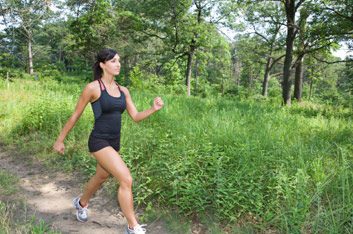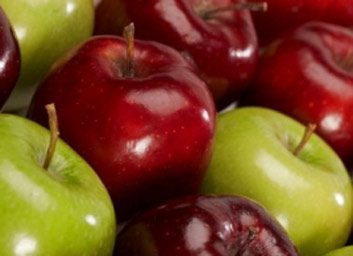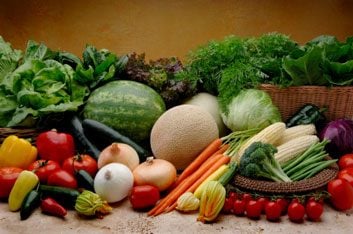
Are you good to your heart?
A stressful relationship, not eating enough produce and even your choice of birth control can all take a toll on your heart. “Although one’s risk for heart disease starts to increase at midlife, even young women need to be aware of their risk,” says Dr. Beth Abramson, a cardiologist at St. Michael’s Hospital in Toronto and a spokesperson for the Heart and Stroke Foundation. “It’s never too early or too late to make a heart-healthy choice.” Take our
quiz and learn more about how to keep your ticker in top shape. >>

1. Your weekly exercise routine consists of:
a) 30 minutes of running or aerobics five days a week
b) a brisk walk to work or to the store three times a week
c) 60 minutes of yoga and meditation five days a week
Learn more >>

Stay active (a,b,c), but include heart-smart activities (a,b)
A U.S. study of 27,055 healthy women found that even one to two hours of moderately intense physical activity each week, such as brisk walking, contributed to a 27 percent reduction in cardiovascular events. (Women who exercised more than five hours a week had a 41 percent reduction.) While sun salutations may not get your heart pumping as much, yoga still has positive impacts on waist circumference, blood pressure, blood sugar and cholesterol levels.

2. After a bad day at the office, you:
a) yell at your spouse, your kids or anyone who will listen
b) talk it out with a loved one
c) eat a tub of ice cream while planning an office coup
Learn more >>

Make nice (b)-it’s good for you
In a study of 8,499 healthy Brits, those who experienced poor support and nasty spats with their significant other were 34 percent more likely to experience a heart attack or chest pain. Another study found that happier people had lower levels of cortisol-a stress hormone linked to high blood pressure, among other ills.

3. Your preferred method of birth control is:
a) the pill-you’ve been using it for years
b) condoms, IUD or diaphragm
c) abstaining from sex
Learn more >>

Talk to your doc if you answered (a)
Long-term use might lead to hardening of the arteries, according to Belgian researchers. Don’t panic, as these observations might not apply to lower-dose pills. But discuss your options, especially if you smoke or are overweight.

4. When you look in the mirror, the fruit you most resemble is a:
a) pear (full hips, small waist)
b) apple (round in the middle)
c) banana (long and lean)
Learn more >>

Reduce calories and exercise more if you answered (b)
Apple-shaped people-those with a high waist-to-hip ratio-are almost twice as likely to have calcium deposits in their coronary arteries as those with a low ratio, even if their body mass index falls within a healthy range, according to a recent U.S. study.

5. The foods you eat most during the day are:
a) vegetables, fruits and legumes such as chickpeas or black beans
b) red meat and chicken, and white rice and pasta
c) fruit juices, refined cereals and packaged meals
Learn more >>

Eat more foods from (a)
Savouring lots of fresh vegetables and fruits, whole grains, fish and legumes, and drinking no more than a glass of wine a day, lowered heart attack risk by 57 percent, according to a Swedish study of 24,444 post-menopausal women. (Exercising, maintaining a healthy body weight and not smoking slashed risk even further.) Go easy on meats and refined carbs, too. Women with diabetes-who are at higher risk for heart disease-should especially watch cholesterol levels, so ditch the processed foods and sugary snacks.
Related:
• 7 foods that help prevent heart disease
• How he can protect heimself from heart disease
• “A heart attack saved my life.”
